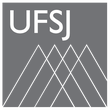Banca de QUALIFICAÇÃO: BRUNO SILVA DE CARVALHO
Uma banca de QUALIFICAÇÃO de MESTRADO foi cadastrada pelo programa.STUDENT : BRUNO SILVA DE CARVALHO
DATE: 30/05/2023
TIME: 14:30
LOCAL: Google meet
TITLE:
Freedom and the Other: the problem of intersubjectivity from the ontophenomenology of Jean-Paul Sartre
KEY WORDS:
Freedom; Intersubjectivity; Phenomenology; Conflict; Situation
PAGES: 105
BIG AREA: Ciências Humanas
AREA: Filosofia
SUMMARY:
This research is based on two fundamental concepts which pervade Jean-Paul Sartre's ontophenomenological analysis, consolidated in 1943 with the publication of L'être et le néant: freedom and intersubjectivity. In this context, the main objective of this work is to evaluate the connections and respective difficulties that surround the way in which the Other came to be interpreted amid the author's texts, acquiring a highly conflictual inclination and, thus, running the risk of entangling human relations into pure inauthenticity. Accordingly, we intend to observe how, in the 1940s and early 1950s, Sartre's work appears anchored on the concept of freedom and, at the same time, emphasize that, if conflict is the fundamental characteristic of intersubjective openness, such difficulty is only possible from a model of freedom that is absolute. In addition, since freedom is presented as a necessary condition for conflict, it will be fundamental for the coexistence between individuals not to result only in failure. In view of this, in the first chapter, supported by phenomenology, we will strive to understand the way in which Sartre conceives his concept of freedom and, at the same time, makes it synonymous with human reality. At this point, we will point to an intense dialogue with what had been produced by Hegel and Heidegger, as well as their limitations. In turn, in the second chapter, we will highlight the theory of intersubjectivity, as proposed by Sartre and, in this investigative line, we will face the problem of solipsism that, for the French philosopher, remained neglected by the recent philosophical tradition. Still at this stage, we will use the theatrical play Huis clos in order to underline the aspects that allow a glimpse of Sartrian intersubjectivity as something conflicting. In the third chapter, continuing the perspective of intersubjectivity, we will have the necessary space to see the role played by corporeality which, in this sense, is not limited to the dimension of subjectivity and, consequently, suffers the impact of the encounter with the Other. In the fourth chapter, we will investigate the occurrence of concrete relationships in which human reality is inserted and, thus, first, we will observe love, language and masochism; that is, the relational type in which the For-itself strives to limit the transcendence that comes from the Other. Next, still in the same chapter, we will analyse the second relational type, which consists of the For-itself's attempt to build its subjectivity in view of the collapse of the Other's transcendence. At the end of chapter four, we will underline some notes related to collectivity, especially Sartre's critique of Heidegger’s concept of Mitsein. Finally, in the fifth chapter, we will return to the Sartrian concept of freedom, but, unlike what was addressed in chapter one, we will take into account being-free in relation to the most diverse situations in which it is inserted, including placing the Other as an inseparable part of the situational plan. Furthermore, with the purpose of glimpsing the fact that the conflict does not represent a dramatic drop in inauthenticity, we will use existential psychoanalysis as a support tool; that is, taking into account the outlook that Sartre elaborates on the poet Jean Genet, we will be in a comfortable position to show that the For-itself is constructed and reconstructed indefinitely, even in the most adverse situations
BANKING MEMBERS:
Presidente - 435109 - WANDERLEY CARDOSO DE OLIVEIRA
Interna - 1184859 - GLORIA MARIA FERREIRA RIBEIRO
Externo à Instituição - LUCIANO DONIZETTI DA SILVA




